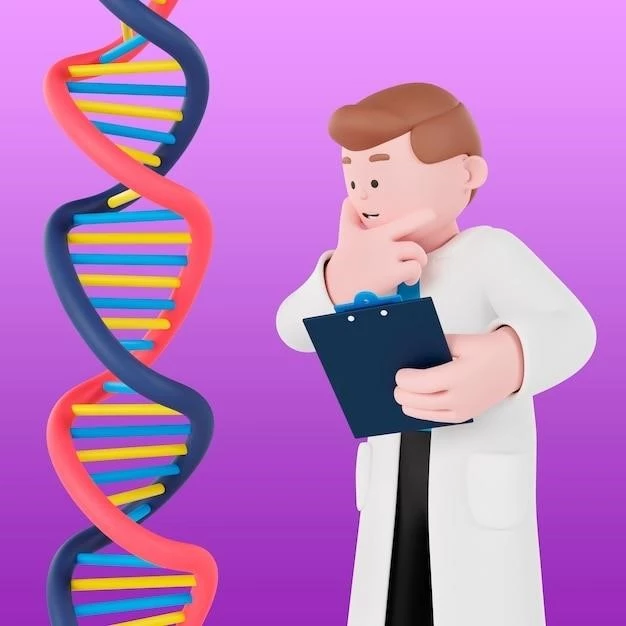Introduction to Wilson-Turner Syndrome
Wilson-Turner syndrome (WTS) is an X-linked recessive neurologic disorder characterized by intellectual disability, dysmorphic facial features, hypogonadism, short stature, and truncal obesity.
Definition of Wilson-Turner Syndrome
Wilson-Turner Syndrome (WTS) is a rare X-linked recessive neurologic disorder characterized by intellectual disability, dysmorphic facial features, hypogonadism, short stature, and truncal obesity. It is associated with mutations in the LAS1L gene and primarily affects males, manifesting with a range of cognitive, physical, and neurodevelopmental symptoms. The syndrome’s diagnosis is based on clinical features and genetic testing, with management focusing on supportive care, educational interventions, and addressing associated health concerns. Research into WTS aims to deepen understanding, improve diagnostic methods, and explore potential therapeutic advancements for individuals affected by this complex syndrome.
Clinical Features of Wilson-Turner Syndrome
Individuals with Wilson-Turner Syndrome typically exhibit a range of characteristics including intellectual disability, dysmorphic facial features, hypogonadism, short stature, and truncal obesity. The syndrome is associated with a variety of neurological and physical manifestations, impacting the overall health and well-being of affected individuals.
Neurological Characteristics
Individuals with Wilson-Turner Syndrome present with a spectrum of neurological features, including intellectual disability, speech impairment, and variable behavioral patterns. These characteristics contribute to the complex nature of the syndrome, requiring tailored management strategies to address the diverse needs of affected individuals.
Physical Manifestations
Individuals with Wilson-Turner Syndrome often display physical characteristics such as dysmorphic facial features, short stature, and truncal obesity. These manifestations, along with other associated features, contribute to the clinical presentation of the syndrome, highlighting the multisystem nature of this complex disorder.

Genetics and Inheritance
Wilson-Turner Syndrome (WTS) is an X-linked recessive disorder involving the LAS1L gene, impacting males primarily. Inheritance is not common as it often arises sporadically due to chromosomal abnormalities.
Mode of Inheritance
Wilson-Turner Syndrome follows an X-linked recessive pattern of inheritance, primarily affecting males due to the mutation in the LAS1L gene. The condition is not commonly inherited, often arising sporadically in individuals with chromosomal abnormalities.
Diagnosis and Prognosis
Diagnosis of Wilson-Turner Syndrome involves clinical evaluation and genetic testing. Prognosis varies but with appropriate care, individuals can manage symptoms effectively and lead fulfilling lives.
Diagnostic Methods
Wilson-Turner Syndrome is diagnosed through a combination of clinical evaluation, medical history assessment, physical examination, and genetic testing, including chromosomal analysis. These methods help confirm the presence of characteristic features and genetic mutations associated with the syndrome, aiding in accurate diagnosis and appropriate management strategies.
Expected Outcome
Individuals with Wilson-Turner Syndrome may experience a range of outcomes influenced by the severity of symptoms, timely diagnosis, and access to appropriate interventions. While the syndrome poses challenges, with adequate medical care and support, individuals with Wilson-Turner Syndrome can lead fulfilling lives enriched with tailored management strategies.
Management and Treatment
Management of Wilson-Turner Syndrome involves tailored approaches to care focusing on supportive strategies, educational interventions, and addressing associated health concerns. Therapeutic interventions aim to enhance quality of life and functional abilities in individuals with the condition.
Approaches to Care
Individuals with Wilson-Turner Syndrome benefit from a multidisciplinary approach to care, involving specialists such as neurologists, genetic counselors, speech therapists, and psychologists. Tailored care plans focusing on supportive interventions, cognitive strategies, and behavioral therapies aim to optimize the quality of life for individuals affected by the syndrome. Regular monitoring of developmental progress, nutritional management, and addressing associated medical issues are integral parts of the comprehensive care provided to individuals with Wilson-Turner Syndrome.
Therapeutic Interventions
Therapeutic interventions for individuals with Wilson-Turner Syndrome focus on a multidisciplinary approach that may include cognitive and behavioral therapies, speech and occupational therapy, as well as medical management of associated health conditions. These interventions are tailored to address the specific needs and challenges of individuals with the syndrome, aiming to improve functional abilities, enhance quality of life, and provide comprehensive support.
Research and Advancements
Advancements in understanding Wilson-Turner Syndrome involve ongoing research to explore diagnostic methods, therapeutic interventions, and potential genetic advancements. Current studies focus on improving outcomes and enhancing the quality of life for individuals affected by this complex genetic disorder.
Current Studies
Ongoing research on Wilson-Turner Syndrome aims to explore new diagnostic tools, effective therapeutic interventions, and potential genetic advancements. Current studies focus on enhancing the understanding of this rare X-linked disorder, with the ultimate goal of improving outcomes and quality of life for individuals affected by Wilson-Turner Syndrome.
Support and Resources
National organizations and support groups provide valuable resources for individuals and families affected by Wilson-Turner Syndrome. Accessing these resources can offer support, education, and guidance to navigate the challenges associated with the syndrome.
National Organizations and Support Groups
For individuals and families affected by Wilson-Turner Syndrome, national organizations and support groups are invaluable resources. These organizations provide support, information, and a sense of community to navigate the challenges associated with the syndrome. Through advocacy, education, and outreach efforts, these groups aim to improve the quality of life and well-being of individuals affected by Wilson-Turner Syndrome.
Comparison with Other Syndromes
Wilson-Turner Syndrome differs from Noonan Syndrome in various aspects, including genetic inheritance, characteristic features, and associated health implications. Understanding these distinctions is crucial for accurate diagnosis and tailored management of individuals affected by these distinct syndromes.
Differences from Noonan Syndrome
While both Wilson-Turner Syndrome and Noonan Syndrome are genetic disorders that may present with intellectual disabilities and dysmorphic features, Wilson-Turner Syndrome is primarily associated with X-linked recessive inheritance and specific neurological manifestations, distinguishing it from Noonan Syndrome, which is linked to different genetic abnormalities and characteristic features. Understanding these variations is essential for accurate diagnosis and tailored management approaches for individuals with these distinct syndromes.

Impact on Quality of Life
Wilson-Turner Syndrome presents challenges affecting cognitive, physical, and emotional well-being, influencing daily life. Supportive care and interventions are crucial to enhance quality of life for affected individuals.
Challenges Faced by Individuals with Wilson-Turner Syndrome
Individuals with Wilson-Turner Syndrome face various challenges related to intellectual disability, dysmorphic facial features, hypogonadism, short stature, and truncal obesity. Managing these complex clinical manifestations, addressing educational and social needs, and navigating healthcare systems present significant hurdles for affected individuals and their families. Support from healthcare professionals, specialized services, and community resources is essential in enhancing the quality of life and well-being of individuals living with Wilson-Turner Syndrome.
In conclusion, Wilson-Turner Syndrome presents complex challenges impacting the cognitive, physical, and emotional aspects of affected individuals’ lives. By understanding the distinct features of this X-linked genetic disorder, implementing tailored management strategies, and utilizing available resources and support networks, individuals with Wilson-Turner Syndrome can navigate their journey with resilience and improved outcomes. Ongoing research and advancements in diagnostics and therapeutics offer hope for enhancing the quality of life for those living with Wilson-Turner Syndrome.
